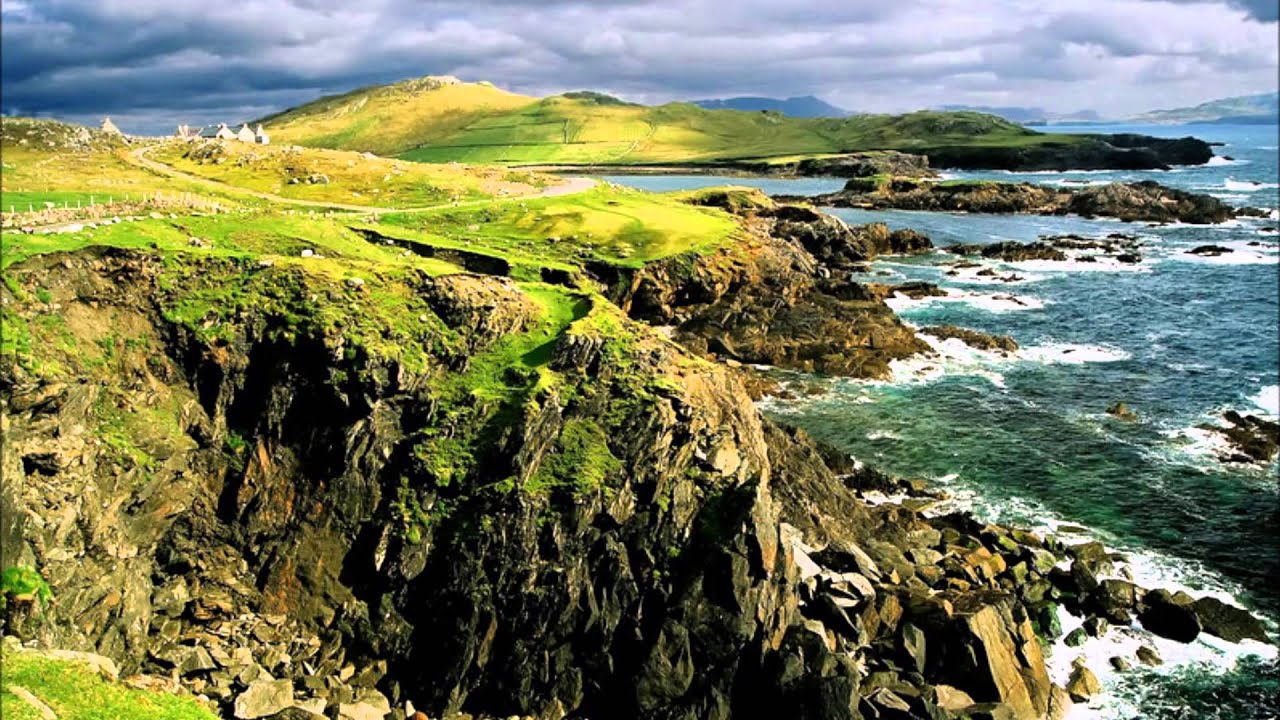Meaning of Niall
Irish Heritage
Niall is an Irish masculine given name with rich historical and cultural significance. Its meaning has evolved over time, but its core essence remains intertwined with power, leadership, and a strong connection to ancient Gaelic traditions.
The name Niall ultimately derives from the Proto-Celtic word “neilos,” which meant “champion” or “victor.” This origin reflects the historical association of the name with prominent warriors and kings in Irish mythology and history.
In early Irish literature, Niall is often portrayed as a powerful and revered figure. One of the most famous Nialls in Irish legend is Niall Noígíallach (“Niall of the Nine Hostages”), a legendary High King of Ireland who ruled during the 4th century AD. His reign was marked by expansion and unification under his leadership.
The name’s popularity continued through various historical periods in Ireland, with many prominent figures bearing the name Niall throughout history. This enduring presence has cemented Niall as a classic Irish name with strong cultural ties.
Beyond its literal meaning of “champion,” Niall also carries symbolic connotations associated with strength, courage, and leadership qualities that have been revered within Irish culture.
In modern times, the name Niall has retained its popularity both in Ireland and internationally. It is often chosen by parents who appreciate its historical significance, strong sound, and connection to Irish heritage.
Variations and Nicknames
Niall is a name with strong roots in Irish Gaelic culture.
Its primary meaning is “champion” or “valiant,” reflecting a sense of strength, courage, and leadership.
The name originates from the Old Irish word “Níall,” which itself likely derives from an older Indo-European root meaning “to conquer.”
Historically, Niall has been a prominent name in Ireland, borne by several important figures throughout the country’s history.
Perhaps most famously, Niall of the Nine Hostages was a legendary 4th-century king who united much of Ireland under his rule.
Niall remains a popular choice for baby boys in Ireland and parts of Scotland.
It also enjoys a certain level of popularity in other English-speaking countries, though perhaps not as prevalent.
Variations of Niall exist in different languages and dialects.
In Scottish Gaelic, the name is spelled “Neil,” while variations like “Neill” and “Niallín” are also found.
Nicknames for Niall often reflect its meaning or sound.
“Ni” is a common and casual shortened form.
Other nicknames might include “Niallo,” “Lloydie” or even “Champ.”
Ultimately, the name Niall carries a powerful sense of history, strength, and nobility.
Origin of Niall
Early Gaelic Roots
Niall is a name with rich historical and linguistic roots deeply entwined with early Gaelic culture. Its origin lies in Old Irish, where it was spelled “Níall” or “Neil”. This name carries significant cultural weight in Ireland, Scotland, and other regions influenced by Gaelic traditions.
The meaning of Niall is believed to derive from the word “nīl”, which means “champion,” “cloud” or “bright.” These multiple interpretations reflect the multifaceted nature of the name and its association with strength, power, and celestial imagery.
Niall features prominently in Irish mythology and historical annals. Several High Kings of Ireland bore the name Niall, notably Niall Noígíallach (“the Nine Hostages”), a legendary figure credited with uniting much of Ireland in the 4th century. His reign is associated with expansion, conquest, and the establishment of a powerful Gaelic kingdom.
The influence of the name Niall extends beyond ancient kingship. It became widespread among commoners, signifying valor and noble qualities. This popularity contributed to its transmission through generations, solidifying its place in Irish culture as a symbol of leadership and heritage.
Niall’s journey from Old Irish to modern English reflects the linguistic evolution of both languages. As Gaelic speakers migrated and interacted with other cultures, the name underwent various transformations while retaining its core essence.
The English form “Neil” emerged as a natural adaptation, reflecting the phonetic changes that occurred over time. Today, Neil is recognized as a distinct name in English-speaking countries, carrying the historical baggage and cultural connotations associated with its Gaelic origins.
Mythological Connections
The name **Niall** is of *Irish* origin, meaning “champion” or “cloud.” It’s a historically significant name in Ireland, deeply rooted in mythology and folklore.
One prominent mythological connection is to Niall Noígíallach (“Niall of the Nine Hostages”), a legendary High King of Ireland in the 4th century. He was said to be descended from **Mathghamhain**, a mythical king, and his reign is associated with prosperity and unity.
This Niall’s name features prominently in Irish myths and legends, often linked to supernatural events and battles. His descendants are believed to have founded numerous Irish dynasties, making the name Niall significant across many branches of the Gaelic aristocracy.
The association with “champion” reflects his status as a warrior king, known for his courage and military prowess. The “cloud” interpretation may symbolize the divine nature attributed to him by early Irish writers.
Beyond Niall Noígíallach, other figures bearing the name appear in Irish mythology, further solidifying its connection to heroic and supernatural themes. This rich historical and mythological tapestry explains the enduring popularity and cultural significance of the name Niall in Ireland and among those with Irish heritage worldwide.
History of the Name Niall
Notable Historical Figures
Niall is a masculine given name with strong roots in Irish Gaelic culture. Its origins can be traced back to the ancient Irish word “niall,” meaning “champion” or “cloud.” This powerful etymology reflects the historical significance of the name within Ireland.
Throughout history, Niall has been a popular choice for baby boys in Ireland and has spread throughout the world due to migration patterns. It is often associated with strength, bravery, and leadership, qualities that have been embodied by many notable historical figures bearing this name.
Here are some of the most prominent individuals who share the name Niall:
-
- Niall Noígíallach (c. 370 – c. 415): A legendary Irish king and High King of Ireland, Niall is considered a pivotal figure in Irish history. He led numerous successful military campaigns and established the powerful Uí Néill dynasty, which would rule much of Ireland for centuries.
- Niall Grianán (died c. 590): Another prominent High King of Ireland from the Northern branch of the Uí Néill dynasty. He is remembered for his military prowess and contributions to the spread of Christianity in Ireland.
- Niall Ó Domhnaill (1625-1698):** Also known as “Neill O’Donnell,” he was a powerful Irish chieftain during the turbulent period of English colonization. He played a significant role in resisting English rule and defending Gaelic culture and tradition.
Beyond these historical figures, countless individuals named Niall have made their mark on various fields, including politics, art, science, and literature. The enduring popularity and rich history of the name Niall serve as a testament to its powerful symbolism and lasting cultural relevance.
Evolution Through Time
The name Niall, a prominent Irish given name with deep historical roots, has its origins in the Old Irish word “Niall,” meaning “champion” or “prince.” Its evolution through time reflects the rich tapestry of Irish history, culture, and language.
During the early medieval period, Niall was borne by several significant figures, most notably Niall of the Nine Hostages (c. 370-405 AD), a legendary High King of Ireland. His reign marked an era of consolidation and expansion for Irish power, solidifying Niall’s place in the annals of Irish history as a symbol of strength and leadership.
Following the decline of Gaelic rule, the name Niall continued to be popular among both commoners and nobility. It was associated with qualities such as bravery, charisma, and resilience. Throughout the centuries, various spellings emerged, including Neal, Neil, Nial, and Noel, reflecting the influence of regional dialects and linguistic changes.
In the 19th century, during a period of Irish nationalism and cultural revival, the name Niall experienced a resurgence in popularity. Its association with ancient heroes and the yearning for a reconnected past resonated with many Irish individuals seeking to reclaim their heritage.
Today, Niall remains a cherished name in Ireland and among communities of Irish descent worldwide. It continues to evoke a sense of pride, strength, and connection to the rich history and traditions of the Emerald Isle.
- 30 Best B2B Leads Database Providers to Try in 2025 - April 26, 2025
- Best Clay Alternatives for 2025 - April 26, 2025
- Best Lusha Alternatives for 2025 - April 26, 2025


